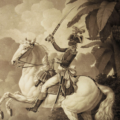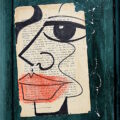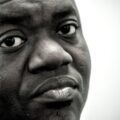Writing the Cry: French and Francophone Literature
French Global: A New Approach to Literary History
edited by Christie McDonald and Susan Rubin Suleiman
Softcover, $30.00
Columbia UP, 2010
Is France still at the center of the French-language literary world? Or, to ask a broader question, is there a center at all? In the fall of 2006, five of the seven major French literary prizes were awarded to foreign-born writers. A manifesto penned by forty-four French-language writers the following year declares: “The center, from which supposedly radiated a franco-French literature, is no longer the center […] the center, these fall prizes tell us, is henceforth everywhere, at the four corners of the world.” The need to assert this claim, combined with the fact that literary works in the francophone world are still ultimately measured by the standards of French prizes, indicates that such a dramatic change has yet to reach completion. But trends show that the center is beginning to dissolve. Demographic changes may also play a contributing role. According to a 2009 Atlantic Council study: “If you’re a human being who speaks French, you’re more likely to be African than European [. . .] If you’re a human being who is literate in French […] you’re probably European. But not for much longer. Demographic growth plus the slow-but-steady rise of literacy rates in most of Africa means that by the next decade, most literate Francophones will be African too.” Aided by this shift and the wider recognition of French-language writers outside of France, a new world literature in French is about to emerge.
Congolese poet and author Alain Mabanckou states in an essay entitled “La Francophonie, oui … Le ghetto, non!”:
To be a francophone writer is to be a repository of cultures, a whirlwind of universes. To be a francophone writer is to benefit from the heritage of French literature in general, but it is above all to bring a personal touch to a harmonious whole, one that dissolves borders, erases race, reduces the distance between continents in order to achieve a fraternity in both language and the universe.
Mabanckou stresses the need to merge these two still-disparate worlds of French and francophone literature. The term francophone is questionable in that it implies colonialism, from which contemporary writers would prefer to distance themselves. As the writers of the manifesto point out: “No one speaks or writes ‘francophone’.” Mabanckou explains: “When we talk about francophone literature, it naturally calls to mind the idea of a distant literature, a literature created outside of France, most often by authors originally from the former French colonies.” One of the goals of the new world literature in French is to cease viewing the literary landscape as it was arranged during the high colonial period, with Europe at the center and barbarians at the gate.
In a sense it is not just a matter of appreciation but a question of terms, oppositions, and categories. If French literature is literature written by people in France, francophone literature by necessity is equated with marginalized cultures. Mabanckou continues:
French literature—that is to say, in the strictest sense, literature created by people from metropolitan France, and in the French language—has always played the role of a unit of measurement with regard to its own literary tradition and its place among the other “great literatures” that have supposedly established the universal model of literary creation. Under these circumstances francophone literature is perceived merely as a marginal literature that revolves around French literature, its progenitor.
It could be argued that Mabanckou’s essay is already outdated. It was published months before the turbulent fall of 2006 and a year before the forty-four–author manifesto was written. However, his complaints resonate. Anthologies of francophone, African, and Algerian writings still crowd library shelves, set off from the mass of French literature. Bookstores still contain separate sections for French and francophone literatures, sometimes wrongly categorized. At Schoenhof’s Foreign Books in Cambridge, Massachusetts, the novels of recent Goncourt winner Marie Ndiaye can be found in the francophone literature section, though the author was born and raised in France by a French mother. Such cases reflect a society that is too quick to classify and predisposed to connect race and ethnicity with nationality—facts which can be problematic. The question at hand, the one raised by the predominance of francophone writers in regards to recent French-language literary prizes, is, “Should the distinction between French and francophone no longer be made?”
In an article in Notre Librarie, a review of francophone literature and criticism whose title has since changed to Cultures Sud, Xavier Garnier notes that literary distinctions such as “périphériques,” “francophones,” and “postcoloniales” imply the existence of a center. He writes, “What is obvious for peripheral literatures is also obvious for francophone literatures that are defined with respect to French literature, or for postcolonial literatures that are reacting to a central point of colonial or neocolonial domination.” Literature written by authors in the French-speaking world tends to be seen exclusively in relation to French literature and considered marginal. Worse, in some extreme cases of bias, their work is not considered literature at all. The Sudanese writer Jamal Mahjoub recalls finding his first novel at Foyles, a major bookstore in London. After a fruitless initial search, he asked a salesperson if they carried the book. The salesperson directed him to the anthropology section. Mahjoub describes his disappointment:
Until then, I was convinced that I was a writer; I had published a novel; but in front of that shelf on the third floor, hidden in a corner like a secret shame, it was clear that I had been fooling myself: I was a humble anthropological informant. For obvious reasons (lack of interest and understanding, market, uselessness…) this literature was only considered for its function of providing information about little-known worlds. African literature was reserved for specialists, like expensive wines or stamp collections.
His novel, he realized, is valued not for its literary merit, but for the window it opens onto Sudanese life, about which most of the bookstore’s British patrons probably know little. Moreover, by titling his article on the discovery “On ne choisit pas une identité littéraire comme on choisit un chapeau,” or “One Doesn’t Choose a Literary Identity the way One Chooses a Hat,” Mahjoub recognizes that his identity as a writer from elsewhere cannot be removed and discarded at will but will remain with him throughout his career. It recalls the racial insights of writers from W.E.B. DuBois to Franz Fanon, raising that seminal postcolonial dilemma: How can a writer’s cultural identity be taken into account without letting it be the single defining aspect of the work?
Along the same lines, poetry anthologies are most often organized by the nationality or ethnicity of the poets, as opposed to the content or style of their poetry. Readers should also bear in mind French poet Michel DeGuy’s comment on the difficulty of anthologizing: “The anthology erodes, simplifies, threatens poetry—it ‘thematizes’ it, reduces it.” We should question the rationale that justifies such titles as Poésie d’Afrique au Sud du Sahara or Écrits d’Algérie. Is it the writing representative of a particular place or group of people, or are publishers (and readers) looking to sell, or sample, an “otherness” that simply isn’t there? The poems themselves have qualities that may be distinct from, or counter-intuitive to, the identity of the poet.
Critic and scholar Irène Assiba D’Almeida points out that the distinction “francophone” is not really accurate: “Francophone, which simply means “French-speaking,” is not exactly appropriate to describe writing.” More critically, the term is misleading in that it does not tell the whole story of a writer’s language background. “[T]o call a person Francophone veils the fact that the person does have another language, in this case a first language, an African language.” Because boundaries between the former colonies were drawn by colonial administrators who did not account for patterns of tribal settlement, national lines arbitrarily cut through ethnic groups, with the result that numerous local languages are often spoken within a single nation. In an interview, Mabanckou relates his personal history of growing up multilingual:
I learned French when I was six. This means that before six I was speaking five or six African languages: Bembé, Lingala, Laari, Munukutuba, Vili, Kamba. I was shocked to see later on that there was no literature in these languages. Nothing is written in Bembé or in Lingala—they’re oral languages. The only way to reach any knowledge about writing was by learning French literature in school.
Though they write in French and are thus considered “francophone” writers, Mabanckou and many of his contemporaries speak several languages other than French, languages that undoubtedly influence their work. These questions, of linguistic and literary influence, become hidden behind the blanket term francophone, and by more readily marketable categories.
In the afterword of J’ai mangé tout le pays de la nuit, the Senegalese poet Amadou Lamine Sall notes that he is from a generation of Africans who learned to read and write in French instead of their own language at school. During the colonial period, the French language was actively imposed in schools that attempted to assimilate members of indigenous populations to a French way of life. After independence, French was the most neutral choice as for many nations’ official national language. Though it was the language of the colonizer, it was known by speakers of all local languages and did not privilege any one ethnic group over another. And French has always been the primary literary language in the former French colonies — most local languages are not written, and French enables writers to reach an international audience. French education also became the primary vehicle for instilling a sense of literature and literary culture. Therefore, Sall explains, although his first language is Peulh, writing in French came naturally to him when he began to write poetry.
As one might imagine, the relationship between African writers and the language of the colonizer is fraught with tensions and contradictions. Mabanckou describes his frustrations with writing in a language many of his people cannot read or understand: “[M]y practice of literature is still in the colonial language. I cannot express something directly to my people, each time I have to explain what it is that I write. I’d like for my people to just read me.”
French is used even in nations that have historically resisted using the colonizer’s language as the dominant means of communication. “Even in countries like Algeria where resentment against the French and the desire for cultural self-affirmation ran high, the policy of Arabisation of the machinery of state has proved a long and painful process. The language of the education system of the language in which affairs of state are conducted cannot be changed overnight.” The Algerian poet Tahar Djaout explained in a 1996 interview that, despite the decision to change Algeria’s official language to Arabic after the Franco-Algerian War, French is the primary language of literary expression in Algeria:
We tried to eclipse the French language. But even after those long years of Arabisation, the production of ideas in our country is done mainly in French, and whether we like it or not, it must be taken into account… When all is said and done, what we must be interested in nowadays is not the language in which one expresses oneself but what it is saying.
At the same time, the question of incorporating words in languages other than French is implicit in Djaout’s poetry. Though Djaout wrote in French, Arabic terms and concepts are prevalent in his work. Sometimes a footnote explaining the term in French is included, but the fact that the Arabic term is used at all shows a split from metropolitan French poetry, borrowing elements from the Arab, Tuareg, and French cultures.
Despite the complications surrounding the use of the colonizer’s tongue, French does reach audiences across national borders. There is a ready literate public both in those former colonies and abroad. Prix Goncourt winner Tahar ben Jelloun half-joked that Arabic is his wife and French is his mistress. Novelist Assia Djebar, in her acceptance speech for the Prix de la Paix in 2000, “referred to her own triple linguistic inheritance: French, the language of the former colonisers in which she writes and thinks; Arabic, her mother tongue in which she loves, suffers and, on occasion, prays; and Berber, the ancestral tongue which she does not speak but which is present within her as the language of resistance and refusal.” Ivoirian writer Véronique Tadjo points out that Léopold Sédar Senghor and Aimé Césaire, often called the founding fathers of the Négritude movement, supported the use of French as “a tool, a possibility” even while calling for African unity, pride, and independence from France. Tadjo clarifies her position thus:
I am not necessarily in agreement with France’s politics in Africa. However, regarding the French language, I think we can say today that it has become an African language in the sense that there are generations of Africans who have been not only schooled in French but raised in French. French has been with us long enough to be part of our lives and to be able to translate our urban reality. In this sense, French, side by side with our national languages, is here to stay. It has allowed us to have access to the modern world, to communicate with it.
French, in the minds of these writers, does not necessitate acquiescence to colonial powers, but has become a part of the African reality.
The term francophone, however, conveys a troubled history without accurately conferring a cultural or literary identity. Francophone carries misleading implications that World Literature in French does not. Keith Walker, an American scholar of French and francophone literatures, points out that the suffix phone calls to mind the voice and hearing rather than the written word. He continues:
The throat and the ear are the channels of voice and hearing that lead to the brain and descend to the “guts,” that is, to the most intimate, secret, and mysterious parts of our being, mental space, intellect, and emotions […] Le cri, the scream, the shout, the primal call, is the voice caught and cut at the threshold between the primal materiality of language and its signifying message. Le cri is the voice as a welling forth, a torrent of autochthonous sound from the labyrinthine, cavernous depths of the self.
The term Francophone, then, positions postcolonial authors who write in French at one end of the traditional emotion / reason dichotomy, a condescending and unfair generalization that delegitimizes the accomplishment of their literary work. A “primal call,” powerful as it may be, is not an accurate way of describing literature. As the Tunisian poet and critic Tahar Bekri puts it: “But the cry, be it the most legitimate, the most deeply moving, is not poetry.”
Resolving this tension between the emotional and the rational, the vocalized and the written, the gut-wrenching cry and the carefully-crafted work of literature, is the dilemma. In her book-length poem Chaque jour l’espérance, the Ivoirian writer Tanella Boni offers a solution: to put the cry into writing. Chaque jour l’espérance opens:
write the cry
life
a song destined for the sea
for the first morning of the world
the deaf cry of a woman’s heart
the daily cry of anger
climbs the mountain of the word
in rhythm and poems
guts and voices
lianas and links
As Boni describes, “the deaf cry of a woman’s heart/ the daily cry of anger” is transformed into literature through “climb[ing] the mountain of the word/in rhythm and poems.” Furthermore, by writing the cry into poetry herself, she undertakes to do with words and sounds exactly what the poem is describing. She begins with open-mouthed vowels like a scream or a cry, rhyming “le cri” and “la vie” in the original text—but she also experiments with crisp consonant sounds: “promise/premier,” “cri/cœur/colère,” “lianes/liens.” The poem is not, finally, a primal call but a wrought pattern that reconciles sound and meaning. Guts and voices are juxtaposed with rhythms and poetry, integrating the two and thus lessening the difference between them. The speaker is hopeful, as the title implies, that emotion can be translated into literature and that the cry can be transferred to the page.
About Liza Katz
Liza Katz is a poet, essayist, and teacher. Her work has appeared or is forthcoming in Poet Lore, Omniverse, Burlesque Press, the Quarterly Conversation, and Arts Fuse.





